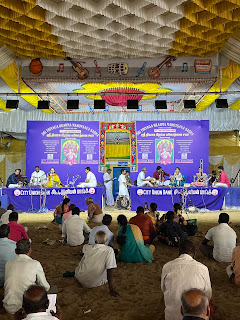When East India company started exploring India for business in India in the late sixteenth century, they needed approvals and favours from Emperor Jahangir. They sent to the Mughal court some merchants but they were not taken seriously. So the British decided to send an ambassador to reach out to the emperor. They nominated Sir Thomas Roe, a 35-year old, as ambassador of King James I.
Roe set out on his voyage on 2 February 1615 and reached Surat after six months of voyage. He had brought fifteen people in his retinue which included a chaplain, a doctor, cook, secretary and even a couple of musicians.
His first challenge was to establish his authority as ambassador and get special privileges and protocol respect. He had to fight for these starting with the landing in Surat. When he reached Surat on 25 december 1615, they made an announcement to the local authorities about the arrival of an ambassador. But the locals laughed at the title and did not take it seriously. The customs authorities wanted to search his luggage. Roe put his foot down and refused to allow the search claiming special privilege as ambassador. He wrote to Zulfiqar Khan, the governor of the Surat area. Khan replied that customs search was standard procedure but he would make an exception in recognition of Roe’s status
The ambassador set foot for the first time on Indian soil, welcomed by a volley of shots from the cavalry. But there was another diplomatic tussle. The thirty cavalry men who were to lead the procession to his place of stay were sitting under an open tent and did not rise to greet him. Roe said he would not go until they stood up and did the honours.
The governor invited Roe to pay him a visit. But Roe declined the invitation saying that according to protocol ambassadors could not visit a foreign official first before presenting themselves to the King. Then the governor wanted to meet the commander of the English ship. Roe wrote to commander Keeling, forbidding him from receiving the governor. Finally, Zulfiqar Khan visited Roe at the latter’s residence.
On 30 October 1615, Roe received Emperor Jahangir’s farmān acknowledging him as ambassador and inviting him to the court as well as commanding Mughal governors on the route to offer all assistance to the ambassador. On the way, Roe stopped in Burhanpur ruled by Parvez, the second son of Jehangir. When he went to see him, the courtiers asked him to bow and offer the customary kurnish (ritual salute) or sijda (full ceremonial prostration). Roe refused. Then they asked him to stand but he demanded a chair to sit. The courtiers then told him politely that ‘as a courtesy’, the prince granted him permission to lean against a nearby pillar.
During his posting for three years as ambassador, Roe had managed to get some trade concessions from the Mughals for East India company. Roe had attended Jehangir’s court regularly and cultivated some senior advisors and family members of the Emperor. He tried hard to advance the English interests at the expense of Portuguese and Dutch but the Mughals were ahead in the game. They made the Europeans to compete with each other for favours.
Roe wrote about his daily activities, success and failures in his diaries as well as in his letters to the Company and to his friends. Some of these, reproduced in the book, are interesting.









